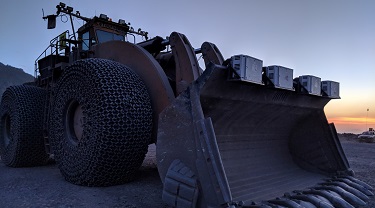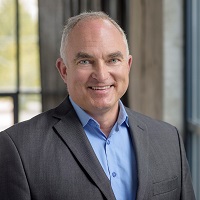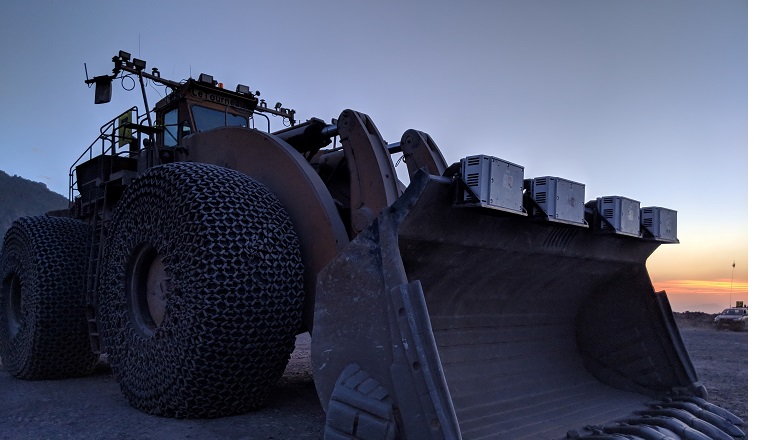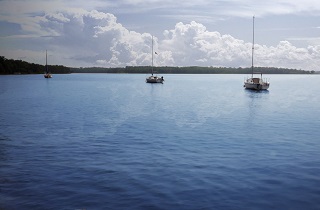Traditional mining is like a game of hide and seek—without the fun. Companies drill down into the rock to retrieve samples, which are then sent to a lab to determine how much valuable ore they contain. But there is no way to know for sure what lies in between any two samples.
MineSense takes the guesswork out of sorting ore from waste rock in a fast, precise and environmentally friendly way. A pioneer in digital mining solutions, our British Columbia-based company provides sensors and analytics to determine in real time whether each bucket is worth sending to the mill for processing or should be scrapped. This not only improves productivity, but also reduces the cost, energy and water required to process waste unnecessarily.
MineSense has already been recognized as a Global 100 cleantech company for our game-changing technology, creating massive improvements in the profitability of mines while greatly reducing their environmental footprint. Some mines even see this technology as increasing the overall life of a mine as well as enabling previously non-viable expansions.
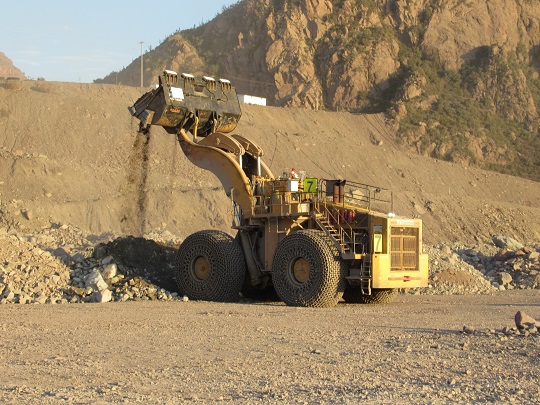
Getting precision in the rock
The major reason our technology is game-changing is the level of precision added to the front of the process. Mining companies make a mine plan designating certain blocks as ore and others as waste. But within a waste block, there can be ore and within an ore block, there can be waste. Before our technology, there was no way to find the ore with any precision. Our system can find it in real time, which prevents processing waste rock or throwing away good ore.
Our equipment, which goes right onto large, heavy-duty shovels, uses X-ray fluorescence (XRF) to identify what type of ore—copper, zinc or nickel—is in the rock and how much of it. In the time it takes for the shovel to lift up, our technology can tell exactly what’s in there.
More efficient downstream steps
Detecting valuable ore in the shovel is critical, otherwise the rock may be designated as waste, put on a truck to get hauled to the dump and is gone forever. Conversely, the increase in precision also significantly reduces a mine’s water and energy consumption. This occurs by detecting the waste in the ore stream and rejecting it early before downstream processing. The comminution process—crushing and grinding the mined rock for processing—uses a great deal of energy, as much as 3% of global electricity production, according to an industry estimate. Our technology allows mines to significantly reduce their energy needs and thus reduce greenhouse gas (GHG) emissions.
Demonstrating the results
The mining industry is typically very conservative and technology-phobic. An expression I’ve heard many times is, “In mining, everyone’s in a race to be second.” That is, no one wants to try anything first. They’re skeptical and have a “I’ll believe it when I see it” attitude. At that point, our pushing turns into them pulling. Wherever we’ve been able to demonstrate our technology, there’s been a switch in mindsets.
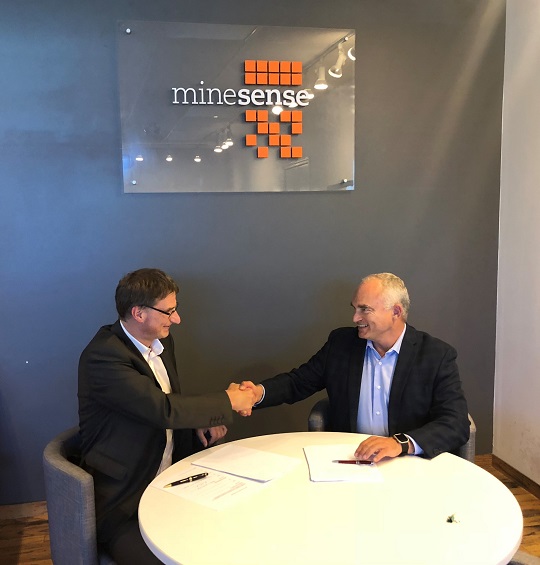
First customer, first contract
Getting to the point of a successful demonstration certainly took longer than we thought and came with a number of technological challenges we had to overcome. Because there were so many unknowns with our technology, there was no way to simulate it until we actually got onto the big production equipment. Our first step was to find mines in BC to do our initial pilots and trials. Fortunately, we found the perfect first customer partner in our own backyard, Canadian-based global mining company, Teck Resources Ltd., which allowed us to do a pilot and scale up at their Highland Valley copper mine.
The transformative potential of our technology was so strong that we were able to convince Teck to sign a full commercial contract (including what they would pay us once we got the system working) before we even completed the trial. There were three reasons that was critical for us:
- At the time, we needed to raise money and to be successful, we needed clients we could talk about with potential investors. Having a firm contract in place was a great motivator.
- The scale up that we went through was much more difficult than we’d anticpated. Because we had that very firm contract with an end-game clearly defined, it helped with the customer to forgive us our sins, so to speak, even though it took much longer than we expected to get the system up and running.
- As soon as we did—BOOM—we had revenue.
The company will generate around $10 million in 2019, our first year of revenue from fully operational systems. In a few years, I expect that will grow to hundreds of millions.
EDC offered great strategy advice for us, in how we grow our business, particularly in export.
Export strategy
Teck is now our key global account and our systems are being introduced in several of their other mines, including in Alaska and Chile.
Chile is now our first international market. We have a growing team there with two mines now using our systems. Our system works with copper and Chile is the No. 1 copper-producing nation in the world (northern neighbour Peru is No. 2), producing almost 30% of the world’s supply. Another great thing about Chile is that many of its copper mines are concentrated in a small area, within 150 kilometres of the town of Calama. As a small company, this allows us to be more efficient. Chile is also high on the scale of ease of doing business with a stable government and strong rule of law.
A strong value proposition for everyone
I believe the best way for cleantech companies to drive something forward, especially in the business-to-business space, is to have a product or service that’s environmentally friendly while also increasing customer profitability.
Potential clients usually want to know: “What’s in it for me?” Despite their best intentions, people tend to balk at having to pay a premium to do something to help the environment. I believe that putting yourself in the shoes of your customer and understanding what the benefit is to them is the surest way to achieve success in the cleantech space.
How EDC helped
EDC has been a fantastic partner. First of all, they’ve offered financial support. Secondly, they offer great strategy advice to us in how we grow our business, particularly in export. And then thirdly, we’ve utilized their network around the world that has really helped get entry into different geographies.
